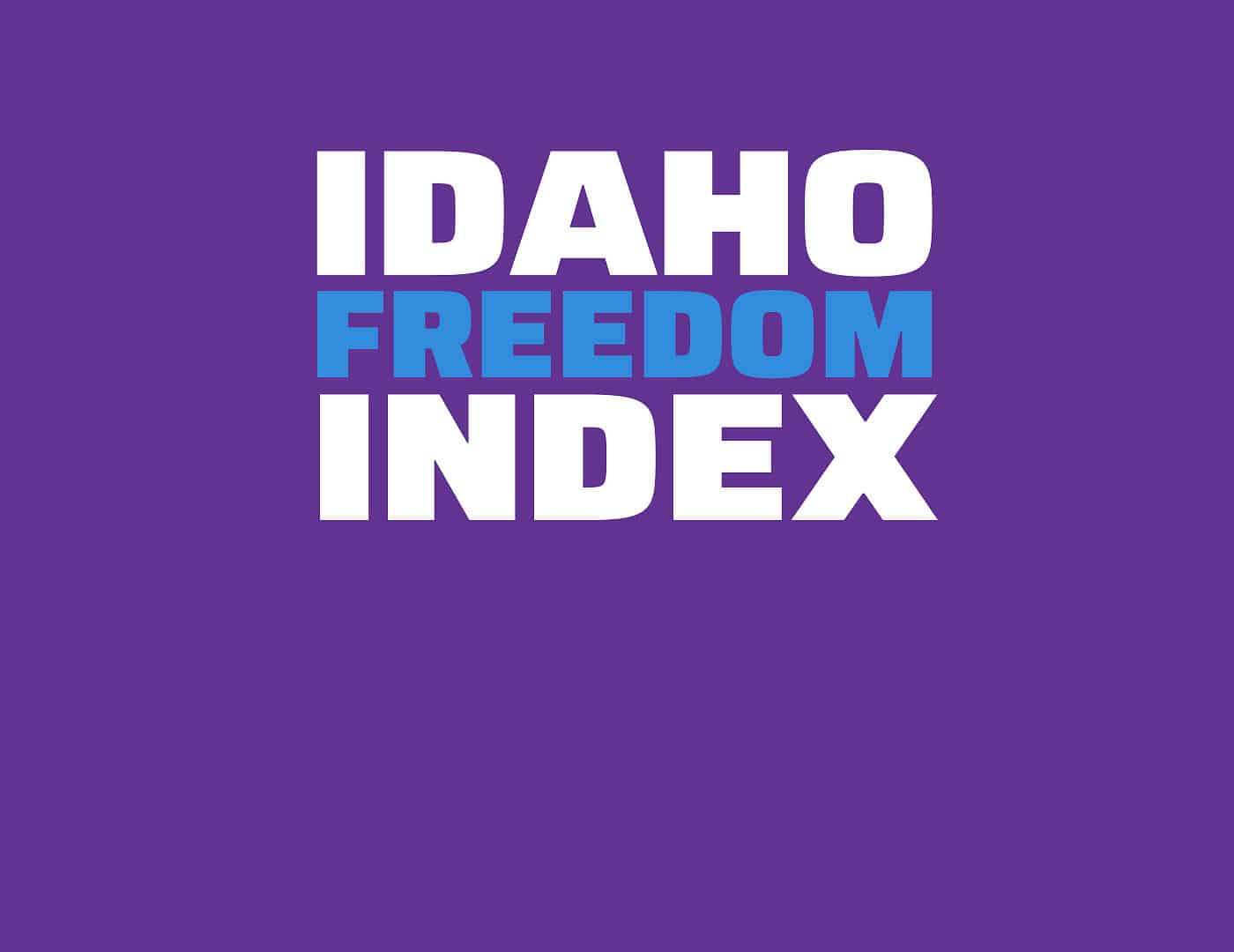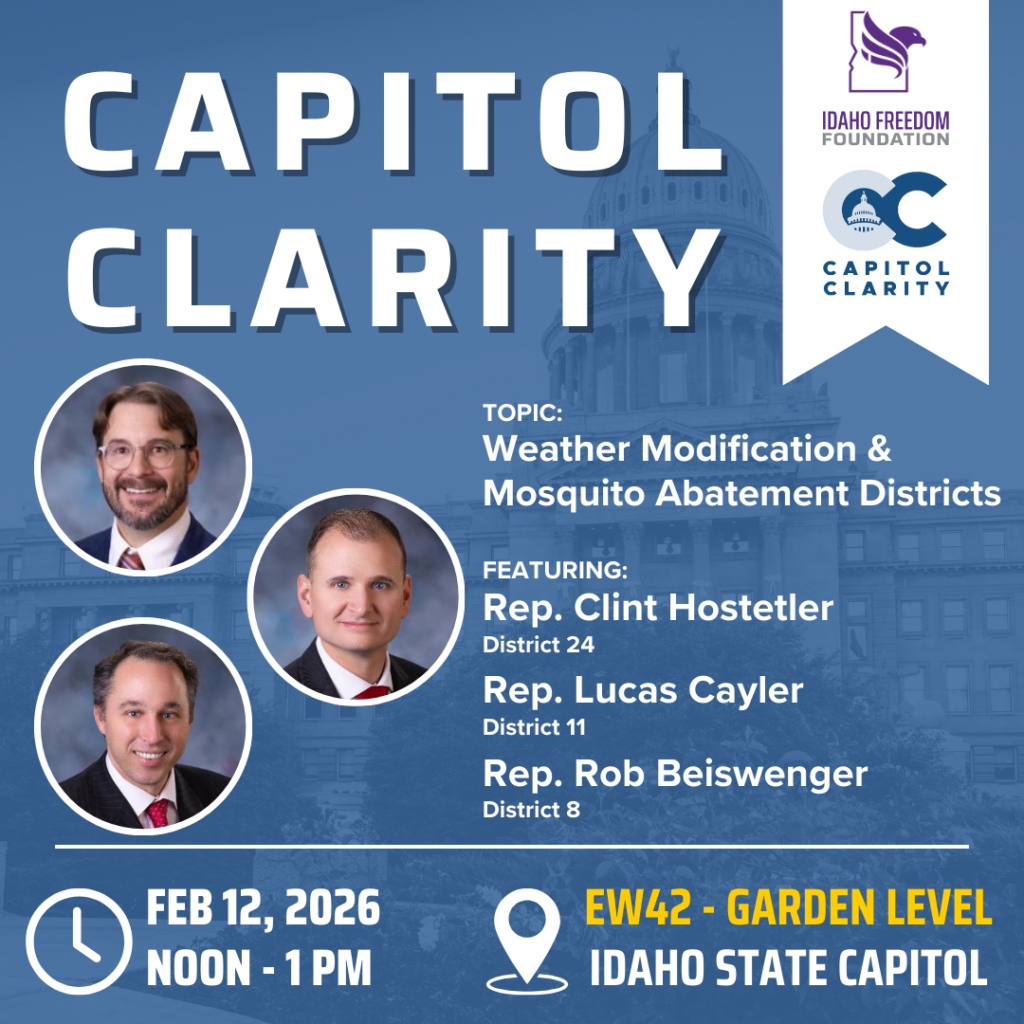


Bill Description: House Bill 298 would make it a felony to receive anything of value derived from another person's engagement in prostitution.
Rating: -1
Does it directly or indirectly create or increase penalties for victimless crimes or non-restorative penalties for nonviolent crimes? Conversely, does it eliminate or decrease penalties for victimless crimes or non-restorative penalties for non-violent crimes?
Chapter 86, Title 18, Idaho Code, is titled "Human Trafficking," and it defines "sex trafficking" as a type of "human trafficking" in which "commercial sexual activity is induced by force, fraud, or coercion, or in which the person induced to perform such act has not attained eighteen (18) years of age."
This is a good definition. It serves to protect minors who legally cannot consent, and it also recognizes that, when it comes to adults, "force, fraud, or coercion" are distinctly different from voluntary activity.
This distinction is lacking in House Bill 298, which repeatedly conflates the concept of "trafficking" with voluntary sexual activity carried out in exchange for anything of value.
Section 18-5601, Idaho Code, currently says "interstate trafficking in prostitution" happens when a person "imports persons into this state, or who exports persons from this state, for the purpose of prostitution" or when a person "induces, entices, or procures such activity. …"
House Bill 298 would expand this definition to apply to any case where a person "imports a person or persons into this state, or who exports a person or persons from this state, for the purpose of prostitution" or when a person "induces, entices, or procures such activity. …"
It should be noted that "imports" could apply to simply giving someone a ride or purchasing a bus or airline ticket; it does not require any element of force, fraud, or coercion.
(-1)
The current penalty for "interstate trafficking in prostitution" is "imprisonment for a period of not less than two (2) years nor more than twenty (20) years, or by a fine of not less than one thousand dollars ($1,000), nor more than fifty thousand dollars ($50,000), or by both such fine and imprisonment."
House Bill 298 would strike "less than two (2) years nor," effectively removing a mandatory minimum sentence.
(+1)
House Bill 298 would repeal and replace Section 18-5606, Idaho Code, which currently criminalizes accepting "the proceeds or earnings of any person engaged in prostitution as part of a joint venture with such person. …" This section clarifies that a "joint venture" is "an undertaking by two (2) or more persons jointly to carry out a single business enterprise involving one or more transactions for profit."
House Bill 298 replaces this language with a far broader prohibition: "Any person who knowingly receives or accepts any proceeds, or the benefits of such proceeds, derived from another person engaging in sexual contact shall be guilty of a felony punishable by imprisonment for a period of not more than twenty (20) years, or by a fine of not more than fifty thousand dollars ($50,000), or by both such fine and imprisonment."
There would no longer be any requirement for a "joint venture" or any need for the person receiving the proceeds to play any part in the "sexual contact" that generates the proceeds.
This section of code is currently designed to target individuals who are connected to the business of prostitution (colloquially known as “pimps”). If this bill were enacted, the law would target everyone in the sphere of an alleged prostitute (including friends and relatives) for prosecution for sex trafficking, even in cases where the alleged prostitution was voluntary and uncoerced.
(-1)
House Bill 298 would create Section 18-8605, Idaho Code, to require the attorney general and the Department of Health and Welfare to prepare reports for the Idaho Legislature. The report from the attorney general would outline "how existing state criminal laws protect or fail to protect human trafficking victims" and recommend "areas of improvement and modifications in existing laws and rules."
The report from the Department of Health and Welfare would outline "how existing social service programs respond or fail to respond to the needs of human trafficking victims and the interplay of such existing programs with federally funded victim service programs" and suggest "areas of improvement or modification."
This section also says that the report from the department shall include but not be limited to an assessment of “the ability of state programs and licensing bodies to recognize federal nonimmigrant status for the purpose of benefits, programs, and licenses."
(0)



